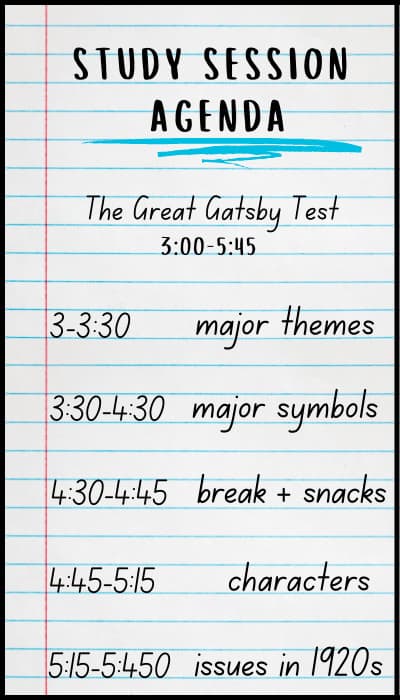By Katie Azevedo, M.Ed.
Even the most independent students can benefit from group study sessions. The trick is knowing how to study in a group so that you get the most out of it.
Benefits of studying in a group
Studying in a group has its perks, even if you typically prefer to study solo. Studying with others can:
- reveal gaps in our understanding
- increase our confidence in the material
- give us a new perspective on the material
- make learning the material less boring
- Keep you accountable for learning the material
When to study in a group
There’s a time and a place for studying in groups, and sometimes it really is better to study by yourself. If you’re simply preparing for a short vocab quiz or something similarly small, there’s no need for a group study session.
However, for larger assessments like midterms or final exams, study groups are awesome. See all the reasons listed above.
Who to include in your study group
Choose carefully who you ask to join your study group. Don’t form a group of your “favorite people,” but rather form a group of the people who will best support your study efforts. It’s fine to study with friends, as long your study group consists mainly of people who are at the same level as you and have the same work ethic as you. These people may not be the same group of friends that you hang out with on the weekends. Accept that.
If someone in your group understands the material better than you do, then you can learn from them. If someone in your group doesn’t understand the material as well as you do then you can teach them. Remember: teaching someone else is one of the best ways to learn something yourself.
Who not to include in your study group
Don’t include anyone who is distracting, negative, or unmotivated. Don’t include anyone who doesn’t have the same goal as you, even if it’s your best friend.
How to prepare for a group study session: 3 strategies
1. Plan your group study session for after you’ve studied the material by yourself.
This sequence is so important! Think of a group study session as a final step in your preparation. You should study independently as much as possible before you get together with your group, so that you can use the group study session to polish off what you know and fill in the gaps on information that you struggle with. If you need help finding the time to study, here are 3 strategies.
2. Build an I-Don’t-Know List.
As you study by yourself before your group session, keep an ongoing list (an actual list) of questions that pop up, material that you don’t understand, information that you’re missing, and other things that you need help with. Bring this list with you to your group study session so that you can get answers from your group members.
3. Plan the study group early on.
Even though your group study session won’t be until the end of your test preparation, start planning your study group early. Plan for:
- Who you want to invite
- Who you don’t want to invite
- Where it will be (house? library? school?)
- When it will be
- How long it will be
Get a date on the calendar right away. This will become your “deadline” for trying to learn the material by yourself. Because remember: the group study session is most effective when you use it as a review.
How to study in a group: What to do during the actual study session
1. Create an agenda.
Ask all group members what they want to cover, and write down everyone’s input. Add the items from your own list too.

2. Start with the easiest material first.
Starting with the easier material can build momentum and enable you to focus on the more challenging information. Another option is to cover material in chronological order if you’re studying something sequential like history.
3. Check off and add items to the agenda.
Put someone in charge of the agenda and have them cross off each item off the list as you cover it. It is also okay to add items to the agenda throughout the session.
4. Listen well to what everyone has to say, even when you’re reviewing material that you think you’ve mastered.
Others often have a way of explaining something that is clearer or more complete than how we understand it. If you happen to disagree with something your group members say, use these 4 tips for communicating what you disagree with.
5. Repeat and rephrase difficult information.
When a group member explains a difficult concept, repeat and rephrase back what they said. Doing so helps us learn information faster. Whatever you do, avoid these 4 common study mistakes.
6. Take breaks.
If your study session is more than 90 minutes, take a short break. Keep breaks to about fifteen minutes so you don’t get pulled into another activity.
The most important thing about groups study sessions
Knowing how to study in a group is an important school habit that will eventually translate into skills that you can use in the workplace. That might sound all “lame teacher-y,” but it’s true. In fact, knowing how to listen to others’ ideas, tactfully contribute your own, and better help others understand information are really life skills. And life skills are, uh, more important than any other kind.

